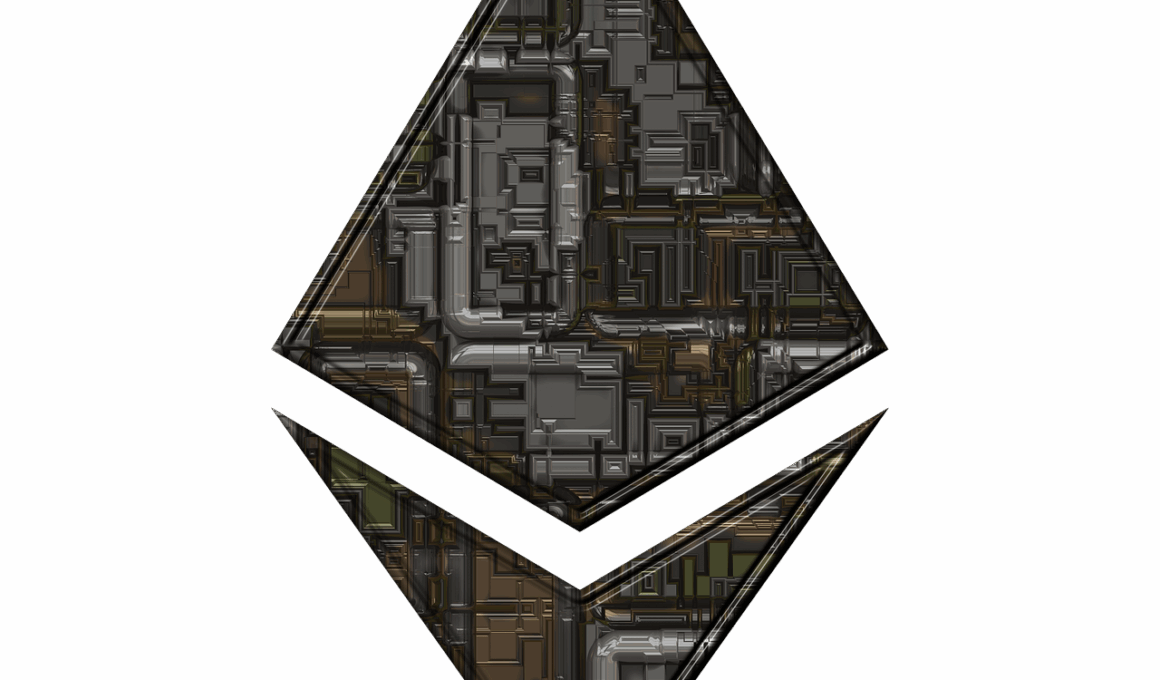ZK-Rollups Explained: Enhancing Privacy and Scalability
ZK-Rollups are layer 2 solutions designed to improve the scalability and privacy of blockchain networks. They achieve this by bundling numerous transactions off-chain into a single proof, which significantly reduces the amount of data that needs to be processed on-chain. This technology utilizes zero-knowledge proofs to verify the validity of the transactions without revealing any personal information about the users involved. Unlike traditional rollups, ZK-Rollups provide enhanced privacy and security, which are crucial for many applications within the cryptocurrency ecosystem. The primary advantage of ZK-Rollups lies in their ability to maintain a high level of scalability while ensuring that sensitive information remains confidential. These features make them particularly attractive for applications requiring both performance and privacy. ZK-Rollups leverage complex cryptographic techniques to achieve these functionalities, allowing for a more efficient blockchain experience. The architecture of ZK-Rollups can significantly alleviate the load on the main blockchain, promoting faster transaction times, lower costs, and overall better network efficiency. In this article, we will explore how ZK-Rollups work and examine their implications for the future of blockchain technology.
ZK-Rollups function by aggregating multiple transactions into a single proof that gets submitted to the main blockchain. This process alleviates congestion on the network, allowing for a higher transaction throughput. When a user makes a transaction, it is confirmed off-chain and subsequently bundled with others. The ZK-Rollup then creates a cryptographic proof, ensuring that all transactions are valid. This proof is significantly smaller than the original transaction data, which makes it more efficient to send to the Ethereum mainnet or any other compatible blockchain. The cryptographic proof enables the verification of multiple transactions without revealing their specifics. A significant benefit of this method is that it minimizes not only the costs related to on-chain data storage but also contributes to a faster transaction confirmation time. Users can expect more efficient resource utilization and scalability as the demand for blockchain solutions continues to grow. Through ZK-Rollups, networks can handle a greater volume of transactions, thus improving usability for applications like decentralized finance (DeFi) and gaming. Overall, ZK-Rollups provide an innovative solution to the ongoing scalability challenges plaguing many layer 1 networks.
Key Advantages of ZK-Rollups
The advantages of ZK-Rollups extend beyond mere transaction aggregation; they include heightened security, reduced costs, and enhanced privacy protections. ZK-Rollups use advanced cryptographic proofs, which guarantee that all transactions are executed correctly without disclosing any underlying details. This means users can trust that their transactions are both valid and confidential, a critical requirement in sensitive applications such as finance and healthcare. Furthermore, because transaction data is minimized, gas fees associated with on-chain transactions are dramatically lowered. This cost-saving aspect is particularly essential for small-scale transactions that would otherwise be economically unviable on layer 1 chains. Scalability is also improved, as ZK-Rollups can support thousands of transactions per second compared to traditional methods, thus enabling real-world applications where speed and efficiency are of utmost importance. Additionally, ZK-Rollups can accommodate diverse applications such as non-fungible tokens (NFTs) and decentralized applications (dApps), enhancing the overall blockchain ecosystem. As a result, ZK-Rollups are increasingly gaining traction among developers and users, who seek efficient and secure blockchain solutions.
To grasp the underlying mechanics of ZK-Rollups, understanding zero-knowledge proofs (ZKPs) is crucial. Zero-knowledge proofs allow one party to prove to another that a statement is true without revealing the actual data or information related to the statement. In the context of ZK-Rollups, this means users participating in transactions can prove their validity without disclosing any sensitive data, like wallet addresses or transaction amounts. This mechanism promotes confidentiality while maintaining the integrity of the transactions. ZKP technology allows for faster verification processes on the blockchain, eliminating the need for extensive data storage requirements. Additionally, the potential for layer 2 scalability stands to revolutionize how decentralized applications operate by enabling users to transact more efficiently. Developers are continually exploring the integration of ZKPs with various blockchain frameworks to enhance their scalability and user experience. Given the growing importance of privacy in blockchain, ZK-Rollups represent a significant advance in ensuring that users remain anonymous while engaging in transactions across platforms like Ethereum.
Use Cases of ZK-Rollups
ZK-Rollups are particularly suitable for various use cases within the cryptocurrency ecosystem. One prominent application includes decentralized finance, where fast transaction confirmation is crucial for trading and lending activities. With ZK-Rollups, users can carry out transactions without the latency and fee issues commonly faced on layer 1 chains. This efficiency enables a seamless trading experience, facilitating real-time interactions and improved liquidity for users. Moreover, ZK-Rollups can significantly enhance gaming environments on blockchain, as they allow a high volume of microtransactions, necessary for in-game purchases and asset transfers. Additionally, privacy-focused applications can leverage ZK-Rollups to protect user data while still complying with existing regulations. For instance, privacy-preserving compliance solutions could utilize ZK-Rollups to verify user identity without needing to disclose personal information. Furthermore, incorporating ZK-Rollups into NFT marketplaces can lead to faster transactions and lower costs, enhancing user experience. With these unique attributes, ZK-Rollups offer scalable solutions for various domains that require fast and private transaction mechanisms, promoting broader cryptocurrency adoption.
The emergence of ZK-Rollups has significant implications for the future of blockchain technology. As scalability and privacy concerns continue to rise, solutions like ZK-Rollups offer promising pathways to resolving these issues. Their ability to process a high number of transactions off-chain while maintaining a secure and private environment makes them a compelling option for developers and users alike. This innovative approach could encourage more projects to implement layer 2 solutions, potentially leading to widespread adoption across numerous industries. By addressing transaction costs and speeds, ZK-Rollups can enhance the user experience in various applications and services within the blockchain landscape. Moreover, the continuous advancements in cryptography are likely to bolster the capabilities of ZK-Rollups, making them even more effective over time. Future developments may facilitate collaboration with traditional financial systems, bridging the gap between conventional finance and blockchain-based solutions. As the cryptocurrency landscape evolves, ZK-Rollups stand poised to play a leading role in shaping how we perceive and utilize blockchain technology, paving the way for innovative solutions that prioritize privacy and scalability.
Challenges Ahead
Despite the many benefits, ZK-Rollups are not without challenges. One significant barrier to adoption is the complexity involved in the implementation and understanding of zero-knowledge proofs. This complexity can deter developers from integrating ZK-Rollups into their projects, limiting their potential impact in the crypto ecosystem. Furthermore, the current infrastructure may require upgrades to fully harness the advantages offered by ZK-Rollups effectively. Existing blockchain systems need to ensure compatibility with ZK technology, which may necessitate considerable changes in their design architectures. As technical hurdles are addressed, questions surrounding interoperability between various rollup implementations will also arise. This interoperability is essential to enable seamless operations across different blockchains and support the broad network effect required for success. Lastly, regulations surrounding privacy-directed blockchain solutions are still evolving, which can create uncertainties for projects utilizing ZK-Rollups. Addressing these challenges requires a concerted effort from developers, regulators, and the broader cryptocurrency community invested in the future of decentralized technologies.
In conclusion, ZK-Rollups are emerging as a vital technology in the realm of blockchain and cryptocurrency. They have transformed how transactions are conducted on networks and have the potential to reshape various industries through improved scalability, faster transaction times, and enhanced privacy. By enabling off-chain transaction processing, ZK-Rollups can facilitate seamless interactions while simultaneously addressing costs associated with on-chain transactions. As developers continue to explore innovative ways of leveraging this technology, use cases in finance, gaming, and beyond will likely flourish, contributing to broader cryptocurrency adoption. While challenges remain, particularly concerning complexity, infrastructure requirements, and regulatory landscapes, the benefits generally outweigh the obstacles. The future of ZK-Rollups appears bright, with advancements in cryptographic technologies enhancing their applications and usability. As public interest in privacy grows, these layer 2 solutions could significantly influence the evolution of blockchain technology. There’s little doubt that ZK-Rollups will remain integral to the ongoing dialogue surrounding the future capabilities of decentralization and the quest for a more scalable and private blockchain environment.





